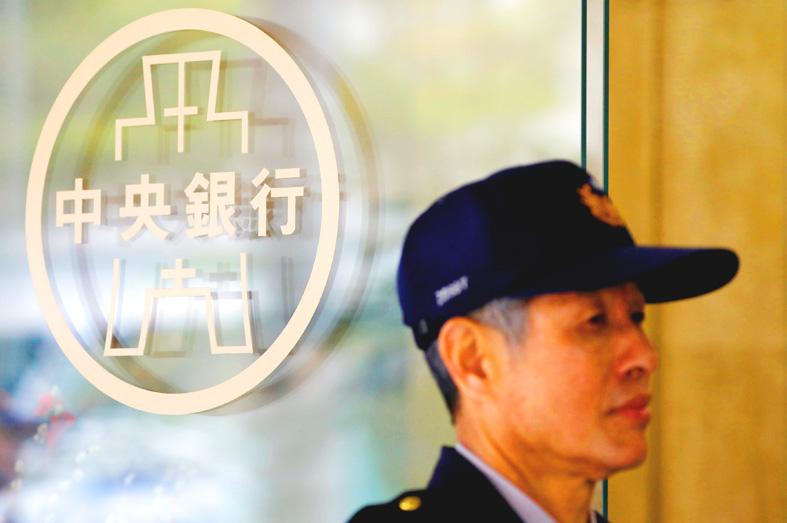Taiwan’s balance of payments last quarter recorded a current account surplus of US$26.1 billion, as exports remained strong, even though export growth slowed from a year earlier due to increased raw material prices and capital equipment imports, the central bank said on Friday.
The balance of payments sums all transactions made by individuals, companies and government bodies in one country with foreign entities. The figure is commonly used as a reference point for monetary policymaking.
Taiwan’s current account surplus dropped by US$3.47 billion from a year earlier, after the goods trade surplus shrank by US$1.96 billion, the central bank said, adding that the retreat was due mainly to soaring international raw material prices and aggressive purchases of capital equipment by local firms.

Photo: Tyrone Siu, Reuters
Taiwanese semiconductor makers have accelerated capacity expansion to meet growing demand from customers abroad.
The most recent government data showed that imports of semiconductor equipment reached US$9.2 billion in the third quarter, up US$3.7 billion from a year earlier.
In the first nine months of this year, the current account surplus reached a high of US$81.02 billion, as the Taiwanese economy generated high outbound sales of electronics components and machinery, among others, the central bank said.
Further, the services account surplus rose by about US$590 million year-on-year to US$2.31 billion in the third quarter on the back of a spike in freight proceeds, the central bank said.
Local shipping companies have raked in record profits amid container shortages and port congestions induced in part by global lockdowns to contain the COVID-19 pandemic, it said.
As for financial transactions, fund outflows widened to a record US$27.1 billion last quarter, the 45th consecutive quarterly rise, up from US$18.36 billion a year earlier and up US$1.38 billion from a quarter earlier, the central bank said.
The central bank said the growth came as domestic life insurers increased stakes in bonds and securities overseas, and foreign portfolio managers trimmed holdings in local shares.
Life insurance investments abroad posted a net increase of US$14.74 billion last quarter, while foreign investments in the local market posted a net fall of US$7.95 billion, it said, calling fund outflows “common” for export-oriented economies.
The outflows occur when the local market cannot meet the need of financial institutions, prompting them to convert current account surpluses into foreign currencies and positions in foreign financial assets to generate returns, the central bank said.
Other economies with current account surpluses, such as Germany, Japan, Singapore, South Korea and Thailand, also regularly record fund outflows, it said.
Over the past 45 quarters, net fund outflows totaled US$594.01 billion, which is equivalent to seven years of Taiwan’s tax revenue.
Additional reporting by CNA

Semiconductor business between Taiwan and the US is a “win-win” model for both sides given the high level of complementarity, the government said yesterday responding to tariff threats from US President Donald Trump. Home to the world’s largest contract chipmaker, Taiwan Semiconductor Manufacturing Co (TSMC, 台積電), Taiwan is a key link in the global technology supply chain for companies such as Apple Inc and Nvidia Corp. Trump said on Monday he plans to impose tariffs on imported chips, pharmaceuticals and steel in an effort to get the producers to make them in the US. “Taiwan and the US semiconductor and other technology industries

SMALL AND EFFICIENT: The Chinese AI app’s initial success has spurred worries in the US that its tech giants’ massive AI spending needs re-evaluation, a market strategist said Chinese artificial intelligence (AI) start-up DeepSeek’s (深度求索) eponymous AI assistant rocketed to the top of Apple Inc’s iPhone download charts, stirring doubts in Silicon Valley about the strength of the US’ technological dominance. The app’s underlying AI model is widely seen as competitive with OpenAI and Meta Platforms Inc’s latest. Its claim that it cost much less to train and develop triggered share moves across Asia’s supply chain. Chinese tech firms linked to DeepSeek, such as Iflytek Co (科大訊飛), surged yesterday, while chipmaking tool makers like Advantest Corp slumped on the potential threat to demand for Nvidia Corp’s AI accelerators. US stock

The US Federal Reserve is expected to announce a pause in rate cuts on Wednesday, as policymakers look to continue tackling inflation under close and vocal scrutiny from US President Donald Trump. The Fed cut its key lending rate by a full percentage point in the final four months of last year and indicated it would move more cautiously going forward amid an uptick in inflation away from its long-term target of 2 percent. “I think they will do nothing, and I think they should do nothing,” Federal Reserve Bank of St Louis former president Jim Bullard said. “I think the

SUBSIDIES: The nominee for commerce secretary indicated the Trump administration wants to put its stamp on the plan, but not unravel it entirely US President Donald Trump’s pick to lead the agency in charge of a US$52 billion semiconductor subsidy program declined to give it unqualified support, raising questions about the disbursement of funds to companies like Intel Corp and Taiwan Semiconductor Manufacturing Co (台積電). “I can’t say that I can honor something I haven’t read,” Howard Lutnick, Trump’s nominee for commerce secretary, said of the binding CHIPS and Science Act awards in a confirmation hearing on Wednesday. “To the extent monies have been disbursed, I would commit to rigorously enforcing documents that have been signed by those companies to make sure we get